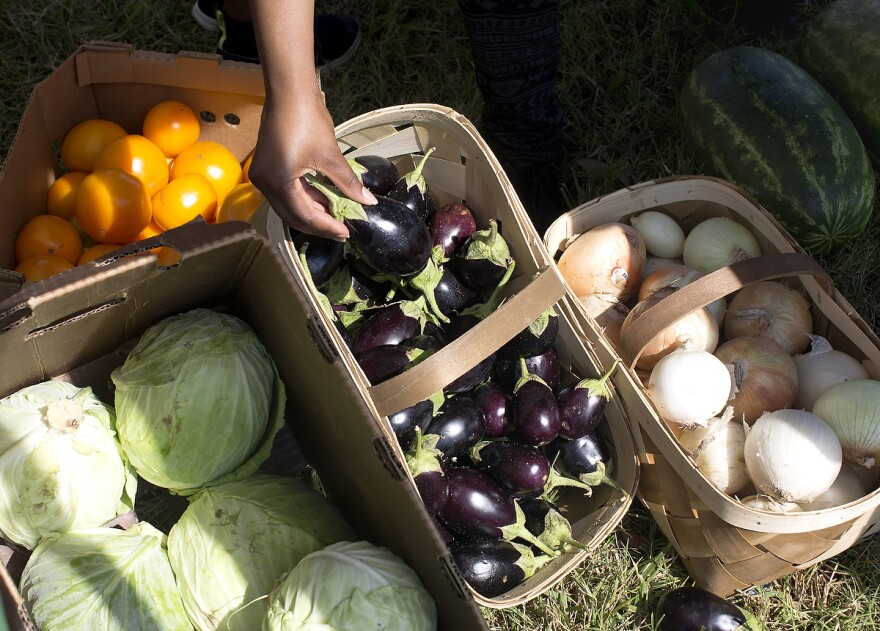On a hot Saturday morning in east Greensboro, customers loaded their vehicles with potatoes, herbs, corn, peaches, watermelon and other fresh produce after visiting a local farmers market.
The difference with the people purchasing these goods and the farmers selling them, is that they're all Black.
The Food Justice for All Farmers Market runs every Saturday in Greensboro until December. Its goal is to highlight Black farmers and farmers of color as well as serve fresh produce to underserved communities.
"For years, there were so many discrimination issues around Black and Brown farmers just either with their land and acquiring their land," Executive Director of the Guilford Urban Farming Initiative Paula Sieber said. "We just want to promote and to help strengthen the commerce and to help save their family farms and then to bring awareness."
Food Justice for All Farmers Market is the interim name for the farmer's market. Sieber said they're holding a contest to come up with a permanent name for it. Regardless of the name, vendors at the farmer’s market say this is something that's needed in the community.

Vanecia Boone owns Herbin Herbals and sells medicinal herbs. She said people need to know that Black farmers still exist.
"We farm, we are agriculturalists, we grow food," she said. "This is what we do and I think we've gotten really far away from our actual truth of this is who we are. I think the Black farmers market really brings that back around full circle."
Greensboro's farmer’s market joins other North Carolina cities, like Raleigh, Durham and High Point, that make it a point to host Black farmer's markets.
The rise in Black farmer's markets is what Charles Lucas likes to see.
He's a Black farmer in Montgomery County and has been there since 1975. His ancestors were sharecroppers.
"I could have been a great farmer back then, but it wasn't afforded me, all the good loans...because being a minority farmer, we ran into those roadblocks of trying to borrow money to buy different things like fertilizer to grow sustainable crop," he said. "I kind of got discouraged but I never sold my land."

Lucas's past problems is something that's plagued the Black farming community for decades.
A recent showed that Black-owned farms represented of all farms in the nation. , 14 percent of the nation's farms were Black-owned.
The reasons for the decline range from discriminatory leasing practices, forcing Black farmers off their land through industrialization, and lack of access to money through loans.
Lucas said a way to remedy the steady decline in Black farming is to teach the younger generation.
"They need to be taught in communities that if they got a parcel of land somewhere in the South or North Carolina somewhere that we can put their grandparents' land back in production and start growing sustainable crop," he said. "Grow, that's going to be your lasting legacy. Think about fresh food and vegetables, what people need, and that'll help grow the economy and that will help grow communities."
PHOTO GALLERY:













